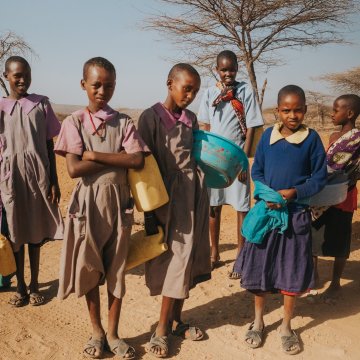- About
- Topics
- Picks
- Audio
- Story
- In-Depth
- Opinion
- News
- Donate
-
Signup for our newsletterOur Editors' Best Picks.Send
Read, Debate: Engage.
| topic: | Health and Sanitation |
|---|---|
| editor: | Bob Koigi |
Even with the recognition of access to safe and clean drinking water and sanitation as a basic human right, two billion people globally lack basic drinking water services. On the other hand, 3.6 billion people - close to half the world’s population - have no access to safely managed sanitation in their homes. The situation is dire in developing regions, like Africa, where 418 million people struggle with access to a basic level of drinking water service, while 770 million cannot access sanitation services.
The many consequences can be devastating, ranging from waterborne diseases, regional conflicts and school dropouts. Indeed, it has become commonplace that many schools run days on end without a drop of water. This predicament has fanned disease outbreaks, leading health facilities to grapple with resource shortages that put the lives of patients in danger.
The situation is exacerbated by decreased rainfall, occasioned by modified weather patterns and climate change. Desperate for the now scarce resource, countries have resorted to exploiting underground reserves in unsustainable ways, which only further complicates the issue.
It is therefore a welcome relief that a new African Cities Water Adaptation (ACWA) fund was recently unveiled on the sidelines of COP27. The $5 billion urban water resilience initiative hopes to provide access to safe and sustainable water services and implement resilient water solutions in 100 African cities by 2032.
The intervention will point urban leaders to funding and technical support so that they can implement solutions, ranging from sanitation services, watershed management, integrated governance and waste water management.
By blending private financing with public sector engagement and development, the fund will play a huge role in insulating African cities from water-related shocks.
Since 1990, Sub-Saharan Africa has only received less than one percent of the $100 billion private investment meant for water infrastructure. The ACWA fund, if well utilised, promises to reverse this trend and catapult African cities and citizens toward sustainable development.
Photo by Tucker Tangeman

